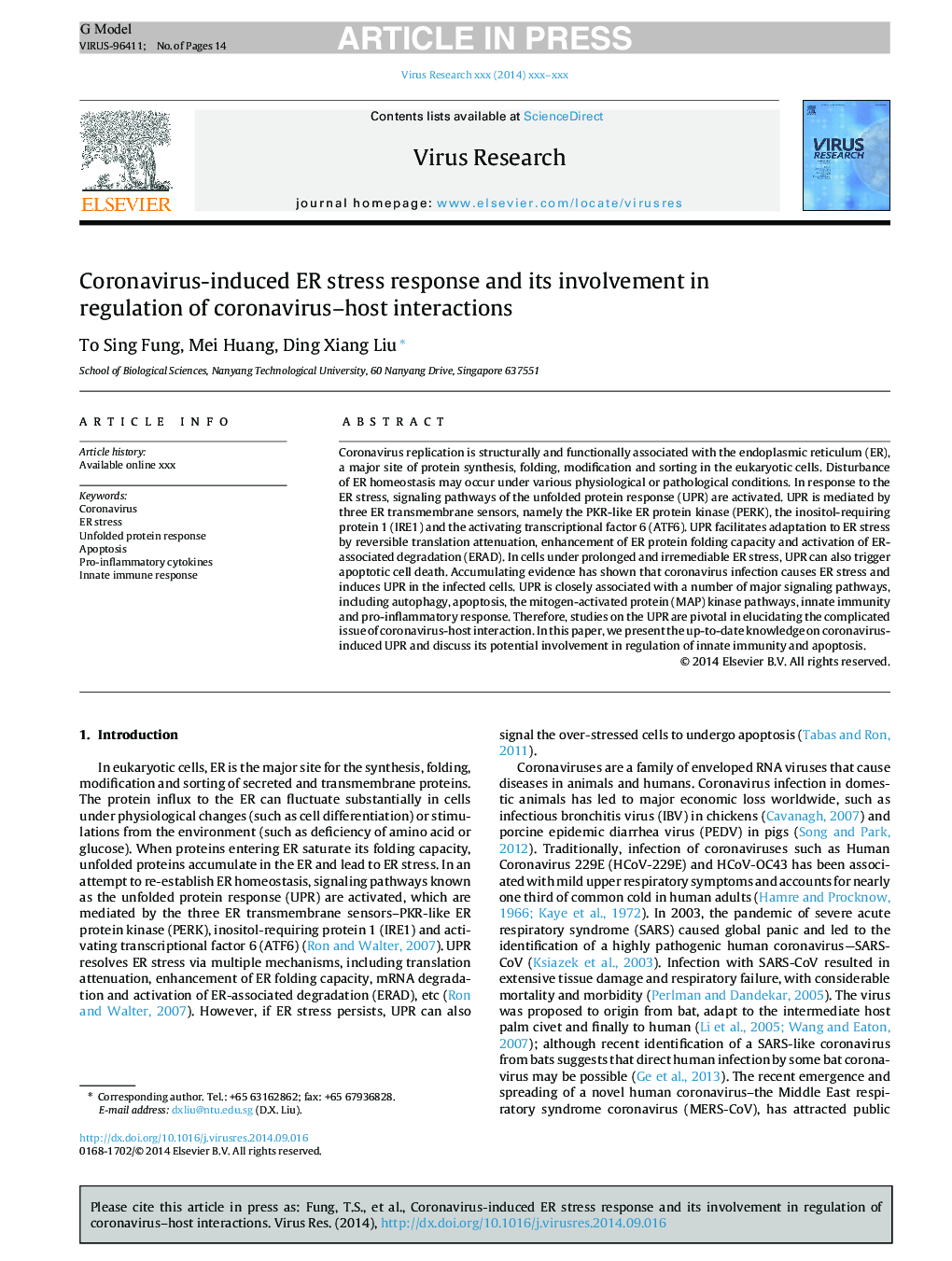| Article ID | Journal | Published Year | Pages | File Type |
|---|---|---|---|---|
| 6142299 | Virus Research | 2014 | 14 Pages |
Abstract
Coronavirus replication is structurally and functionally associated with the endoplasmic reticulum (ER), a major site of protein synthesis, folding, modification and sorting in the eukaryotic cells. Disturbance of ER homeostasis may occur under various physiological or pathological conditions. In response to the ER stress, signaling pathways of the unfolded protein response (UPR) are activated. UPR is mediated by three ER transmembrane sensors, namely the PKR-like ER protein kinase (PERK), the inositol-requiring protein 1 (IRE1) and the activating transcriptional factor 6 (ATF6). UPR facilitates adaptation to ER stress by reversible translation attenuation, enhancement of ER protein folding capacity and activation of ER-associated degradation (ERAD). In cells under prolonged and irremediable ER stress, UPR can also trigger apoptotic cell death. Accumulating evidence has shown that coronavirus infection causes ER stress and induces UPR in the infected cells. UPR is closely associated with a number of major signaling pathways, including autophagy, apoptosis, the mitogen-activated protein (MAP) kinase pathways, innate immunity and pro-inflammatory response. Therefore, studies on the UPR are pivotal in elucidating the complicated issue of coronavirus-host interaction. In this paper, we present the up-to-date knowledge on coronavirus-induced UPR and discuss its potential involvement in regulation of innate immunity and apoptosis.
Keywords
Related Topics
Life Sciences
Immunology and Microbiology
Virology
Authors
To Sing Fung, Mei Huang, Ding Xiang Liu,
